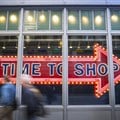Any discussion around the retail sector today centres on one point - customer experience (CX). Global research houses agree that it is vital for retailers to have strong CX strategies in place.

Ajay Lalu, co-founder and director of Consumption Information Real Time (CIRT)
For example, Gartner reports that over 70% of CX leaders struggle to design projects that increase customer loyalty and achieve results; and add that marketing leaders must develop effective CX strategies if they are to optimise customer interactions and drive business outcomes.
McKinsey notes that retailers need to adapt to what they call the next normal in retail i.e., the customer experience imperative.
The pandemic has seen many brick and mortar closures leading to uncertainty around the future of in-store retailing and this is not only a South African phenomenon but rather a global one.
The arrival of lockdown measures around the world left many retailers floundering in their efforts to introduce omnichannel and digital technologies and practices, while those who already had this in place found it easier to ride the Covid storm.
Ostrich approach not fit for business
Organisations with the foresight to implement business strategies that factor in customer expectations and consumers’ appetite for digital solutions have proven to be more resilient in the face of dramatic changes in the retail landscape. Covid-19 has led to dramatic shifts in consumer behaviour that confirms that retailers will have to play a speedy game of catch-up if they are to meet ever-evolving customer experience requirements and stay relevant.
Furthermore, the move by e-commerce trailblazers, like Amazon and Google, to also have physical outlets should be enough to strike fear into the hearts of all brick and mortar retailers.
Savvy retailers would be wise to set a CX North Star as the path to achieving their growth goals and actually staying alive as a business.
Sticking your head in the sand won’t make the problem go away. Retailers continuing to ignore consumer expectations around retail technologies, do so at their peril. Those retailers who successfully bridge the “awareness/experience gap” have a crucial advantage. This is according to Kearney, who notes that when it comes to in-store technologies, consumers have heard all the promises but are still waiting for retailers to deliver. They confirm that when it comes to retail technologies, most retailers’ performances are still lagging consumer expectations.
Key tech and consumer trends
Kearney’s retail survey which polled 1,000 people from various demographic and economic backgrounds about emerging retail technologies used in brick and mortar stores, focused on five crucial technologies:
• Cashier-less checkout - Mobile apps that add items to a virtual cart as customers shop and charges the customer automatically.
• Mobile point of sale - Technology that enables smartphones, tablets, or other mobile devices to substitute for traditional cash registers.
• Augmented reality (AR) - Technology incorporating interactive digital elements into physical shopping environments.
• Interactive screens - Screens that enable seamless physical and digital integration by allowing customers to scan products for more information.
• 3D printing - Technology that enables on-demand creation of customised products
The survey findings put four crucial observations under the spotlight, and they were:
1. Consumers want to save time in store, but only on certain shopping activities
Retail technology that saved time ranked among the most valuable by respondents. Seventy-two percent of consumers cited technologies that reduce checkout time, and 61% of consumers cited technology that reduces time spent navigating the store.
2. Retailers are lagging consumer expectations for retail technology
The survey revealed a nearly 50% increase between the number of consumers who indicated that technology had influenced their shopping choices in the past, to those who expect technology to influence their shopping choices in the future.
The above represents a substantial opportunity for retailers to address consumer expectations by bridging the gap.
3. Big box retailers have led in the implementation of retail tech, but consumers expect specialty shops to catch up
Forty-five percent of respondents reported visiting a big box store because of technology. This contrasted with 24% who said they had visited specialty stores because of technology. However, 58% of consumers expect retail technology to impact their specialty store choices in the future.
Kearney reports that consumers expect to be more influenced by technology than they have been in the past.
4. Specialty consumers value experience, while big box consumers value convenience
Consumers are reported to be selective about which technologies resonate most with their needs in different retail contexts, and about how those technologies impact specific elements of their shopping journeys.
The Kearney report notes that ultimately, retailers must make hard choices about which technologies they invest in and the size of those investments. The survey suggests that retailers hoping to successfully bridge the consumer “awareness/experience gap” are advised to implement various strategies including investing in technology solutions that serve to meet consumer expectations and demands, as evidenced by the report findings.
In conclusion, the retail sector will undergo a radical transformation where the power will shift to disruptors like Uber where increasingly customer experience is being proven to be everything. Consumers want technology that allows them to spend less time checking out. Retailers need to invest in solutions that meet this challenge and that add a digital experience to physical store environments. Only in this way will brick and mortar retailers remain relevant in the face of massive competition from e-commerce giants, such as Amazon.






















































